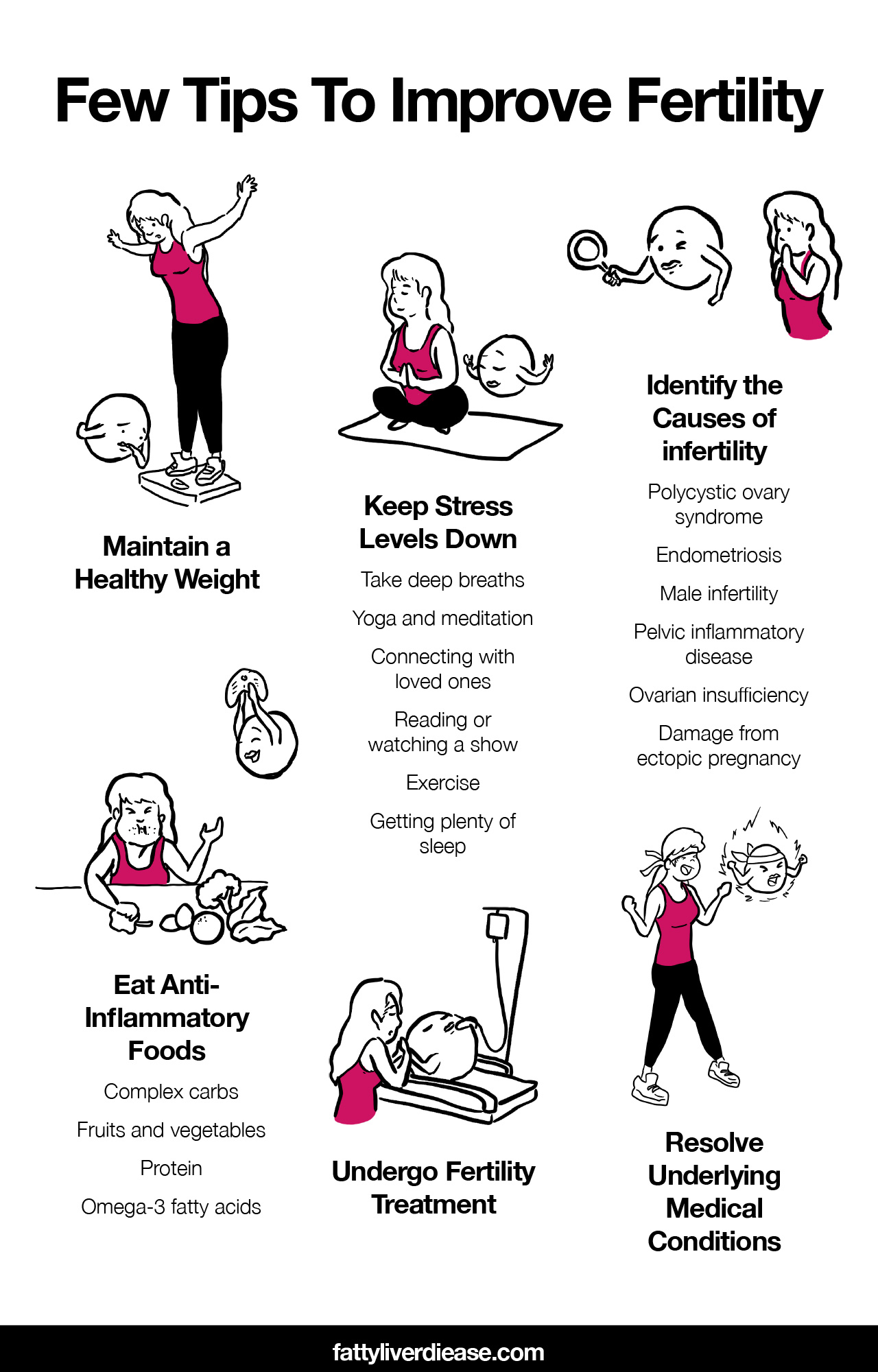When you’re struggling to get pregnant, it can be absolutely gut-wrenching to see pregnant women on the street or as you scroll through your Instagram feed. Other women’s pregnancies seem to just feel like a taunting reminder of how badly you want children and how difficult it is for you. You can’t wrap your mind around not having kids, and the question “why can’t I get pregnant?” reverberates in your head constantly.
Infertility and difficulty conceiving can be accompanied by intense and painful emotions that can take time to work through. Here we go through tips for processing and handling your emotions and you undergo treatments and dietary changes to improve fertility.
Why Can’t I Get Pregnant? Is It Hard to Get Pregnant?
You may be wondering, “why am I not getting pregnant, and why does everyone else seem to be getting pregnant?” Though it may seem like everyone is getting pregnant but you, the truth is that infertility and trouble conceiving affects many couples – more than you might think.
Before we dive into processing the emotions surrounding infertility, let’s first go over why infertility is more common than you might.
Baby-making is a natural process, so it should be easy, right? Wrong. So many factors must align in order for conception to take place and a baby to start developing within the womb.
First of all, healthy reproductive systems start with the woman and man individually. For a woman, the menstrual cycle must regularly yield a mature egg. The ovaries must have follicles that develop each month and release a mature egg that travels down the fallopian tubes and to the uterus. The uterine lining must thicken to prepare to house a growing embryo. If any of these steps is thrown off, pregnancy will not occur. Anything can get in the way of this process, from stress and hormonal imbalances to being older than 30 years old. How many eggs does a woman have at 35, for example? Well, way fewer eggs than she had in her twenties. Moreover, common conditions like PCOS or endometriosis may also be the reason underlying lack of conception.
For men, sperm count must be high enough in order to increase the likelihood that a sperm will fertilize an egg. Sperm must also have excellent motility and quality to ensure that they make their way through the vaginal canal, the cervix, and ultimately the uterus to find the egg and lead to successful fertilization. Psychological stress, physical stress, hormone imbalances, and diet can impact sperm count and motility.
On top of the optimal function of both the female and male reproductive systems, sexual intercourse must occur at precisely the right time. The optimal time for pregnancy to occur is during ovulation, at which point the ripe egg is released from the follicle. The sperm can then meet the egg on its journey and allow for the fertilized egg to implant in the uterine wall. In fact, the optimal time for pregnancy to occur is just a narrow window of 24-48 hours! If this window is missed and sexual intercourse occurs too early or too late in a woman’s cycle, a pregnancy will not occur. So, as you can see, even under the most perfect circumstances, many moving parts must come together to produce a pregnancy.
Coping with Trouble Conceiving
If you have trouble conceiving, you are not alone! Many couples struggle with fertility problems, though you may not realize it because so many people suffer in silence. If you are experiencing issues with fertility, make sure that you surround yourself with support and adopt coping techniques while you work towards finding solutions for infertility.
1. Hide or Unfollow Expecting Moms on Social Media
Social media is a huge part of everyone’s lives these days. From Instagram to Facebook, social media can provide an outlet for expression and a method of connecting with others. However, social media can also be toxic. Refrain from scrolling through the accounts of expecting mothers, which can ignite feelings of jealousy and unworthiness, which can be extremely upsetting. While you work through your own personal journey at this time, it’s best to turn your attention inwards, towards yourself. If needed, hide or unfollow people who don’t lift you up and give you strength.
2. Follow Others Who Are Struggling with Fertility
You may be tempted to unplug altogether as you go through fertility treatments and work through your journey to conceiving. However, you may also want to check out social media pages of women who are on the same journey as you are. Though they seem less prevalent on social media, there are still many people who are open and vulnerable about their struggles with fertility. Connecting with these individuals and sharing your own story will help you understand that you are not alone, and others are facing the exact same struggles that you are.
2. Be Honest with Pregnant Friends
Having pregnant friends or family members can be very frustrating. While you may feel happy for them, their pregnancies seem to simply be a constant reminder of how much you are struggling with fertility. In these cases, it’s best to be honest. Communicate with your pregnant loved ones and let them know how happy you are for them, but also let them know how much you are struggling and hurting inside. Though not everyone will be able to understand exactly how you feel, many people can empathize, provide support, and can better understand when you don’t make it to their baby’s gender reveal.
3. Confide in Trusted Family Members and Friends
Do not struggle with infertility in silence. This can magnify the burden that you bear internally. The longer you hold onto a secret like this, your feeling will grow bigger and more difficult to manage. Always presenting an exterior image, especially to trusted loved ones, can become extremely exhausting. Sharing your feelings with trusted loved ones can help relieve you of your emotional burden and the need to constantly put up an emotional façade.
4. Join a Support Group
Joining a support group for women struggling with infertility is one of the most proactive moves you can make while coping with your own infertility journey. By joining a support group, you will become more aware of how many individuals struggle with conceiving and you will feel less alone. You can join in-person support groups or online support groups.
5. Accept Your Feelings and Express Them
Struggling with infertility can bring up all kinds of unpleasant emotions. All of your feelings surrounding infertility are completely normal. You may feel grief, shame, sadness, anger, and jealousy. When experiencing these emotions, it may be helpful to record your feelings in a journal. Writing down your feelings or expressing them through music or art can actually be extremely cathartic.
6. Speak to a Counselor or Mental Health Professional
If your feelings surrounding infertility become so intense that they begin to significantly interfere with your everyday life, it’s a good idea to talk to an experienced professional about how to best deal with your emotions. Mental health professionals provide tools for coping with devastating emotions and life circumstances. A licensed counselor can provide guidance as you work through fertility issues, as well as any other life issues. Licensed counselors are available both online and in medical offices.
7. Actively Work on Improving Your Fertility
Lastly, don’t give up on your journey to have a baby. Both the medical field and nutrition offer a variety of solutions and strategies to help couples conceive babies. As mentioned before, infertility is not a rare issue. Millions of couples struggle to conceive a child, and luckily there are strategies for increasing your chances of becoming pregnant. Keep reading the next section to find out more about what you can do to improve your fertility.
Can You Improve Your Fertility?
If you’re striving to have a baby and are struggling to conceive, you may be wondering, “how can I increase my chances of getting pregnant? Is it even possible?” Luckily, it is completely possible to improve your fertility and increase your odds of achieving a pregnancy.
Plus working on bolstering your fertility can help you wrap psychologically cope with the situation at hand. Oftentimes, taking steps to improve a situation is psychologically more comforting than simply accepting it without trying to make it better.
Here are a few tips for improving your fertility and the odds of conceiving.
1. Maintain a Healthy Weight
Keeping your body mass index (BMI) within a healthy range is absolutely critical for improving fertility. Having a high BMI is associated with insulin resistance, which impacts nearly all hormonal functions and can negatively impact fertility.
So, how can you make sure you stay at a healthy weight? You can manage your weight by watching your calorie intake and increasing physical activity. If you are overweight, your energy expenditure must exceed your energy intake, in order to ensure weight loss. You can increase your energy expenditure by exercising more frequently.
2. Eat Anti-Inflammatory Foods
Anti-inflammatory foods help manage any stressors that the body may be experiencing, while also helping to balance your hormone levels.
Anti-inflammatory foods include complex carbohydrates, fruits and veggies, beans, nuts and seeds, and high-quality protein.
- Complex carbs: Complex carbs contain carbohydrates that are also paired with fiber, protein, and/or antioxidants. The body breaks down complex carbohydrates slowly, in order to release a steady energy supply that fuels that body without creating a sugar spike and crash. Sugar spikes that are characteristic of eating lots of refined carbs and added sugars are associated with insulin resistance and hormone imbalances. Complex carbs can be found in whole grains, fruits, and veggies.
- Fruits and vegetables: Besides being an important source of complex carbohydrates, fruits and vegetables also supply plenty of antioxidants like polyphenols and carotenoids. Polyphenols and carotenoids directly target oxidative stress in the body, which causes cells to accumulate waste products and operate ineffectively. The compounds in fruits and veggies exhibit potent antioxidant activity by scavenging free radicals and helping cellular processes operate as smoothly as possible. As a result, eating a diet rich in fruits and vegetables can help lower systemic inflammation throughout all organ systems, including the reproductive system. Excellent choices of fresh produce include sweet potato, kale, broccoli, brussels sprouts, spinach, arugula, beets, celery, carrots, strawberries, raspberries, blackberries, and blueberries.
- Protein: Getting an adequate amount of protein in your diet is important for fortifying nearly all cellular processes. Protein is made up of units called amino acids, which are vital for synthesizing muscle, fortifying the immune system, healing from wounds, and producing neurotransmitters, hormones, and enzymes. The most important amino acids to get in your diet are called essential amino acids. Essential amino acids must be obtained in ideal ratios on a daily basis, in order to support optimal health. Animal proteins yield ideal ratios of essential amino acids. The best sources of animal protein dairy and meat products like milk, cheese, yogurt, chicken, and turkey that are low in saturated fat and minimally processed. Fish is also an excellent source of essential amino acids as well as anti-inflammatory omega-3 fatty acids. If you eat a primarily plant-based diet, it’s important to eat a variety of plant proteins throughout the day in order to get optimal ratios of essential amino acids.
- Omega-3 fatty acids: Omega 3 fatty acids are polyunsaturated fats that exert potent anti-inflammatory effects on nearly all organ systems. Omega-3 fatty acids are found in fatty fish, nuts, and seeds. Incorporating plenty of omega-3 fatty acids into your diet on a daily basis is critical for reducing stress on the body while also reducing inflammation and encouraging the healthy functioning of the reproductive system. To get plenty of omega-3 fatty acids in your diet, reach for foods like salmon, mackerel, sardines, flaxseeds, chia seeds, and walnuts.
3. Keep Stress Levels Down
Have you ever experienced a great deal of stress, and then you noticed that your period stopped or was particularly light? This is just one example of how much stress can influence reproductive health. Stress is also able to impact ovulation and other aspects of reproductive health.
Keeping your stress levels to a minimum may help improve your reproductive health and prepare your body to house a baby. Here are a few strategies for keeping your stress levels low:
- Take deep breaths: This may sound simple, but taking deep breaths when faced with anxiety and stress is a proven way to low your heart rate and help quell the release of adrenaline. Deep breathing techniques can also easily be performed anywhere, making it a portable stress-reduction strategy.
- Yoga and meditation: Engaging in regular yoga and meditation is helpful for managing chronic stressors. Yoga and meditation serve as outlets for stress and are excellent practices for re-centering the mind and placing focus on the present moment, instead of worries and anxiety.
- Connecting with loved ones: We thrive on human connection. Talking to trusted friends or family members on a regular basis is an effective way to manage stress. Sharing your thoughts and feelings can help take a weight off of your shoulders.
- Reading or watching a show: Having wind-down time at the end of the day is extremely important and helps you re-center your mind after a long day. Aim to set aside a few minutes each day to do something that you enjoy, such as going for a walk or watching a show that makes you laugh.
- Exercise: Exercise has the ability to help relieve stress. To engage in stress-relieving exercise, try light jogging, brisk walking, swimming, hiking, biking, or dancing. Physical activity increases endorphins and improves mood while also relieving stress. There is one caveat, though: don’t engage in too much strenuous physical activity. Overworking yourself either mentally or physically can increase stress levels and make it less likely that you will conceive.
- Getting plenty of sleep: Sleep is sometimes underrated when it comes to managing stress levels. Sleep plays a pivotal role in quelling both inflammation and oxidative stress. Being deprived of sleep can be both a direct cause of inflammation as well as a contributor to inflammation that is present for other reasons. When you sleep, the body and immune system work hard to clear the cells of waste while also lowering levels of inflammation. Aim to get at least 7 hours of sleep each night. Taking a little melatonin, establishing a nighttime ritual, and setting the same bedtime each night can help you get adequate sleep more consistently.
4. Undergo Fertility Treatment
In vitro fertilization (IVF) and intrauterine insemination (IUI) are two medical treatments that are used to help treat infertility and enhance your odds of conceiving. In vitro fertilization involves bringing together eggs and sperm outside of the body, to create several fertilized eggs. A physician will then place the fertilized eggs into the woman’s uterus, and usually just one of the fertilized eggs will implant in the uterine wall. Sometimes, however, IVF can increase the likelihood of having twins.
5. Identify the Causes of infertility
Different infertility cases are associated with different causes. Visit your physician, a fertility specialist, and a reproductive endocrinologist to make sure that any therapeutic tactics directly address and resolve the underlying cause. Here are a few possibilities:
- Polycystic ovary syndrome: Polycystic ovary syndrome, also known as PCOS, is a condition in which a woman’s ovaries develop fluid-filled cysts. Women with PCOS struggle with hormonal imbalance, with high levels of testosterone that cause a variety of unpleasant symptoms. Many women with PCOS have symptoms like hirsutism, weight gain, and cystic acne.
- Endometriosis: Endometriosis is a condition in which endometrial tissue begins to grow outside of the uterus. This endometrial tissue thickens like it normally does inside the uterus, and then bleeds each month. Endometriosis is associated with irregular periods, extremely painful periods, and heavy periods.
- Male infertility: Male factor infertility is equally as likely to be a culprit as female infertility. A health care professional can conduct a semen analysis to determine sperm count and sperm motility. Ejaculation patterns and other characteristics of a man’s sperm may also influence fertility.
- Pelvic inflammatory disease: Pelvic inflammatory disease is a condition in which bacteria make their way into the vagina, cervix, and uterus. In many cases, bacterial infections have no symptoms, allowing them to grow until they cause significant inflammation of the reproductive organs and damage. Pelvic inflammatory disease is most often caused by sexually transmitted infections such as chlamydia and gonorrhea.
- Ovarian insufficiency: Ovarian insufficiency is a condition in which ovaries stop working. Generally, this happens in a woman’s 50s, though ovarian insufficiency can occur in a woman’s 40s.
- Damage from ectopic pregnancy: An ectopic pregnancy is one that has implanted in the fallopian tubes, instead of the uterus. Ectopic pregnancies are dangerous and unsustainable, and a mother cannot carry an ectopic pregnancy to full term. Leaving an ectopic pregnancy unattended for too long can lead to severe damage to the fallopian tubes, which can impede future pregnancies.
Finally, some cases of infertility are described as unexplained infertility. This means there is no identifiable cause for the difficulty becoming pregnant. In these cases, it may certainly be a matter of playing the waiting game.
6. Resolve Underlying Medical Conditions
Sometimes, underlying medical conditions may indirectly impact fertility, and once resolved and under control, your fertility will return. For example, metabolic conditions such as fatty liver disease, insulin resistance, or type 2 diabetes may be associated with infertility if hormone levels are affected. Prolactinoma is an example of another condition that causes a small benign tumor on the pituitary gland in the brain. Although the tumor is benign and usually very tiny, it can still cause levels of prolactin to elevate to abnormal levels. This can cause the menstrual period to stop and can cause temporary infertility. Medications are available that can shrink the prolactinoma and help prolactin levels to return to normal, at which point a woman’s menstrual cycle will return, as will her fertility.
Though these are simply examples of conditions that may result in infertility, it’s important to consult your doctor in case there are any underlying conditions that may be contributing to infertility. Pinpointing the exact issue can help ensure that treatments are relevant and timely and that the issue is addressed as quickly as possible.
Conclusion
Facing fertility problems can be extremely upsetting and feel unfair. However, it’s helpful to know that you and your partner are not alone in your struggle to conceive. Connecting with others struggling with similar issues and going through infertility treatments can be extremely comforting. Always reach out to trusted loved ones if needed and express your feelings.
























